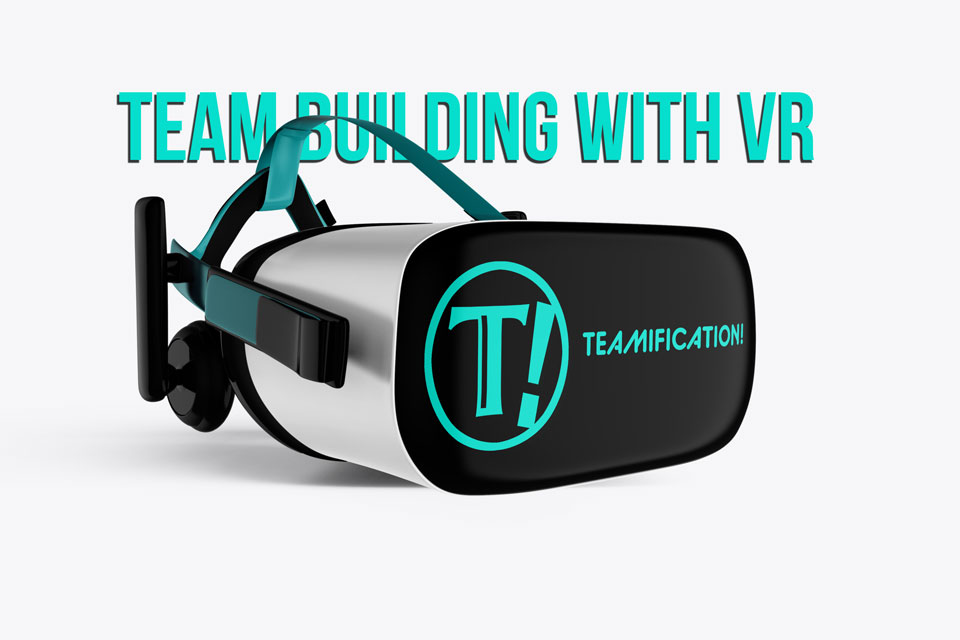The #1 Team Building Strategy for Creating Effective Teams
A compelling team building strategy is essential for forging effective teams. This approach not only enhances collaboration and communication but also fosters a culture of mutual respect and shared goals.
When it comes to building teams that truly excel, it’s essential to go beyond conventional methods and explore innovative strategies. One powerful approach is to immerse teams in experiential learning activities that mirror real-world challenges. This team building strategy involves engaging participants in hands-on, problem-solving tasks that require collaboration, communication, and creative thinking. By stepping out of their usual work environment and tackling unique scenarios together, team members develop deeper trust, sharpen their problem-solving skills, and learn to leverage each other’s strengths more effectively.

Understanding the Core of Team Building Strategy
A successful team building strategy goes beyond occasional outings or one-off meetings. It’s about creating a culture of continuous engagement and shared experiences. Monthly team building events stand as a testament to this belief. They are not just activities but pivotal experiences that shape the way team members interact, solve problems, and work towards common goals.
At its core, an effective team-building strategy encompasses activities and practices that contributes to creating an environment where collaboration, communication, and mutual respect among team members is a given.
Because building a cohesive team is not just a task—it’s an ongoing commitment. At Teamification, we understand this deeply. Our mission is to empower organizations with strategies that turn groups of individuals into synergistic teams. With a focus on team building strategy, we emphasize the value of regular team building events, both physical and virtual, to foster unity and collaboration.
Key Components of a Successful Team Building Strategy
To craft a team-building strategy that resonates with the current workforce, several elements must be considered:
Diversity and Inclusion Every team member brings a unique set of skills, experiences, and perspectives. Embracing this diversity not only enriches the team’s creativity but also promotes a culture of inclusivity.
Regular Engagement Consistency is key. Implementing monthly team-building activities keeps the momentum alive, ensuring team cohesion is continuously nurtured and that newer team members feel integrated.
Flexibility and Adaptability are key in team management and in building a strong team ethos. The ability to tailor team-building activities to suit the varying dynamics of a team is crucial. This includes blending traditional in-person events with virtual team-building exercises to accommodate everyone.
The Impact of Effective Team Building Strategy
Teams that engage in regular, structured team building activities, focusing on collective activities, tend to perform better. They display enhanced communication, a deeper understanding of each team member’s capabilities, and a stronger commitment to shared objectives, which are crucial in building a strong team. This not only boosts productivity but also contributes to a more harmonious workplace environment.

Customizing Team Building for Every Organization
No one-size-fits-all approach works in team building, underscoring the importance of custom strategies for building effective teams. Each organization has unique needs, goals, and challenges. At Teamification, we tailor our strategies to fit the specific context of your team. Whether it’s bridging the gap between different departments or integrating new members into the fold, our customized approach ensures that every team building event is meaningful and impactful.
Leadership in Team Building Strategy
Leadership team building plays a crucial role in the success of any strategy. Leaders must not only endorse but actively participate in team building activities. This involvement demonstrates a commitment to the team’s development and fosters a culture of mutual respect and collaboration. There are also leadership activities specific to creating a better team building strategy.
The Role of Virtual Team Building
The shift towards remote work has highlighted the importance of virtual team-building activities. Virtual events break the monotony of remote work, bringing team members together in a relaxed and engaging environment. Teamification emphasizes the creative aspect of virtual team building, ranging from online escape rooms to virtual missions and adventures, making team cohesion possible regardless of geographical barriers.
Monthly Team Building: Strategy for Sustained Success
Implementing a monthly team-building strategy offers several benefits:
- Continuous Improvement in Team Dynamics Regular interactions foster a deeper understanding among team members, smoothing out potential conflicts and enhancing collaboration.
- Increased Employee Engagement and Morale Monthly events provide team members something to look forward to, boosting morale and overall job satisfaction.
- Flexibility to Innovate and Adapt With regular events, organizations have the opportunity to experiment with different formats and themes, keeping the team-building efforts fresh and relevant.

Case Studies: The Impact of Regular Team Building
Teamification has witnessed firsthand the transformative power of a well-structured team building strategy. Organizations that embrace monthly online team building events report not only improved team cohesion but also significant boosts in productivity and employee satisfaction. It’s a simple and cost effective model. These methods contribute to creating a continuous learning and engaging culture.
A Cohesive Team, High Camaraderie
When your team building strategy includes regular events, it has the ability to build cohesive teams, improves teamwork, and keeps everyone engaged. Organizations that opt for monthly virtual team activities or retreats have seen a huge uptick in engagement scores.
High Performing Teams that sets Clear Goals
Regular team building events not only brings the entire team together but also helps your team to understand their roles better. As you collectively create an environment of success, you will witness the transformation of your group into a high-performing team. This encourages team members to regularly contribute and yet set clear goals and objectives.
Make Every Team Member Accountable
As part of the team building strategy, the role in the team is to enable individual team members to be more accountable. When you have monthly and regular activities, you can define the objectives so that the overall team as well as each member becomes more accountable and is empowered to their best. This is a positive step towards building effective teams.

Team-Building Activities for High-Performing Teams
Team building strategy is not just about having regular events or virtual activities. It also involves the process of building an effective team over a period of time. From understanding team members’ strengths, to creating an environment where employees feel valued, the team building process should make sure that the team will be able to achieve its full potential.
Start with Trust Building Activities and communication games. Move to collaborative activities as part of building a cohesive team, then onto delegation where you can hold people accountable. From there you can address conflict resolution and conflict management. Include time management activities and decision making. By this time, you should be assembling a team with everyone on the same page and an environment where employees feel empowered. The best team-building strategies are about keeping it simple and effective.
Looking Ahead: The Future of Team Building Strategies
As the work environment continues to evolve, so will team-building strategies. The future points towards more personalized and technology-driven approaches, focusing on creating meaningful connections among team members and employing strategies for building cohesive units.
Monthly team building events, both virtual and in-person, are not just activities but strategic investments in the future of your team. They lay the foundation for a culture of collaboration, respect, and continuous improvement.
Conclusion: The Heartbeat of Successful Teams
A robust team-building strategy is indispensable in today’s fast-paced and ever-changing work environment. As we look to the future, the role of innovative team building strategies in shaping successful organizations cannot be overstated.
Teamification stands at the forefront of this revolution, championing innovative and inclusive strategies to build teams that are not just groups of individuals working together, but units driven by shared purpose and mutual respect.
Through monthly team building events, both in-person and virtual, we help teams forge stronger bonds, understand each other better, and work more effectively towards their common goals. Our approach is tailored, measurable, and constantly evolving, ensuring that the teams we work with are not just teams in name but in spirit and action.
In crafting teams that excel, remember, the strength of the team is each individual member, and the strength of each member is the team.
Let’s build together.
Contact us
FAQ on Team Building Strategy
What is a team building strategy?
A team building strategy is a structured plan or approach designed to improve the cooperation, communication, and cohesion among team members. It often involves activities and exercises that encourage team members to work together towards common goals, fostering a sense of unity and enhancing overall team performance.
How can a team building strategy improve team performance?
A well-executed team building strategy can significantly improve team performance by strengthening relationships, enhancing communication, and promoting trust among team members. By engaging in collaborative activities, team members learn to better understand each other’s strengths and weaknesses, leading to more effective collaboration and problem-solving in their daily tasks.
What are some examples of effective team building activities?
Effective team building activities include a variety of exercises such as problem-solving challenges, outdoor adventures, role-playing scenarios, and creative workshops. These activities are designed to encourage collaboration, improve communication, and build trust. Examples include escape room challenges, team building with VR, group activities with Harmonicas, and cricket team building activities too. Each activity aims to bring team members together in a fun and engaging way, fostering a stronger team dynamic.


